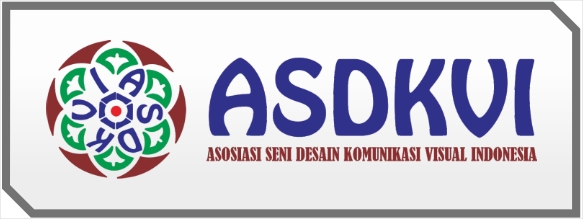Membangun Modal Sosial di Tanah Rantau
DOI:
https://doi.org/10.59581/harmoni-widyakarya.v1i1.332Abstract
Merantau is an activity outside the territorial area to get a better life and with different goals for each individual who migrates. Social capital itself is a capital that cannot be seen but can be used to develop the lives of individuals or groups that are created from mutual trust in each other which then creates a very strong network so that values are born in the midst of the community which aims to achieve goals. together. This study uses a type of qualitative research with an ethnographic approach. The purpose of this study was to find out the role of social capital in Wonogiri chicken noodle and meatball traders in Sumbersari Village, Sumbersari District, Jember Regency. The results of this study explain that (1) trust in each individual can be born from friendliness that comes from one individual to another individual which after that carries out a reciprocal process. (2) Maintaining trust greatly affects the quality and cohesiveness of the network. (3) Family ties can be a very useful social capital in overseas countries.
References
Creswell, J. W. (2015). PENELITIAN KUALITATIF & DESAIN RISET, Memilih
Diantara Lima Pendekatan. Yogyakarta: Pustaka pelajar.
Putnam, R. D. (2000). Bowling Alone, The Collapse and Revival of America Community.
New York: A Thouchstone Book.
Usman, S. (2018). Modal Sosial. Yogyakarta: Pustaka Pelajar.
Santoso, T. (2020). Memahami Modal Sosial. Surabaya: Pustaka Saga.
Syahra, R. (2003). Modal sosial: Konsep dan aplikasi. Jurnal Masyarakat dan
Budaya, 5(1), 1-22.
Handayani, Baiq Lily. 2015. “MEMPERKUAT MODAL SOSIAL PEREMPUAN DALAM MENGHADAPI BENCANA.” Program Studi Sosiologi, Fakultas Ilmu Sosial Dan Ilmu Politik, Universitas Jember 27.
Muzib, Rodhy Fathul, Baiq Lily Handayani, and Joko Mulyono. 2021. “Solidaritas Pokja Masyarakat Hadapi Potensi Tsunami Melalui Wadah Destana.” Journal of Urban Sociology 4(2):103. doi: 10.30742/jus.v4i2.1774.
Of, Management, T. H. E. Mount, Semeru Eruption, and Disaster Through. 2022. “International Journal of Education and Social Science Research MANAGEMENT OF THE MOUNT SEMERU ERUPTION DISASTER THROUGH SOCIAL.”
(6):307–19.
Aziz, Ahmad Amir. 2020. “Living Teologi: Religiusitas Dan Hubungan Sosial Pedagang
Kaki Lima.” Jurnal THEOLOGIA 31(1):87. doi: 10.21580/teo.2020.31.1.5756.
Bakhri. 2022. “Analisis Fungsional Struktural Peluang Dan Tantangan Jawa Tengah Menjadi Sentra Industri Kecil Dan Menengah Pengolahan Kelapa Structural Functional Analysis Opportunities and Challenges of Central Java to Become a Center for Small and Medium Coconut Proce.” Analisis Fungsional Struktural Peluang Dan Tantangan Jawa Tengah Menjadi Sentra Industri Kecil Dan Menengah Pengolahan Kelapa.
Fajri, Ahmad. 2021. “Peran Kewirausahaan Dalam Pembangunan.” Iqtishodiyah: Jurnal
Ekonomi Dan Bisnis Islam 7(2):104–12.
Farraz, M. Akma., and Adha Fathiah. 2021. “Alat Analisis Strategi Bertahan Hidup Sektor Informal Perkotaan Selama Pandemi Covid-19: Review Literatur.” Jurnal Sosiologi Andalas 7(1):1–10. doi: 10.25077/jsa.7.1.1-10.2021.
Ghafur, Muhammad Fakhry. 2016. “Ketahanan Sosial Di Perbatasan: Studi Kasus Pulau
Sebatik.” Masyarakat Indonesia 42(2):233–48.
Afida, Wildan. 2017. “Jaringan Sosial Pedagang Etnis Minang.” Sosiologi, Program
Studi Sosial, Fakultas Ilmu Jakarta, Universitas Negeri.
Handayani, Baiq Lily. 2015. “MEMPERKUAT MODAL SOSIAL PEREMPUAN DALAM MENGHADAPI BENCANA.” Program Studi Sosiologi, Fakultas Ilmu Sosial Dan Ilmu Politik, Universitas Jember 27.
Sofyan R. Indara, Irwan Bempah, Yurike Boekousoe, Ernawaty Mappigau, and Muh.
Ferils. 2020. “Tenaga Kerja, Modal Kerja Dan Teknologi Pengaruhnya Terhadap
Pendapatan Nelayan Desa Bambu Kecamatan Mamuju.” Jurnal Agrinesia 1(1):91–
Azhari, F. 2018. “Peran Modal Sosial Dalam Pengembangan Jaringan Usaha Kecil
Menengah.” Jurnal Administrasi Bisnis 59(1):1–77.
Handoyo, Eko. 2014. “Kontribusi Modal Sosial Dalam Meningkatkan Kesejahteraan Pedagang Kaki Lima Pascarelokasi.” KOMUNITAS: International Journal of Indonesian Society and Culture 5(2):252–66. doi: 10.15294/komunitas.v5i2.2743.
Anandita, Florentinus Bigar Anung, and Sumarno Dwi Saputra. 2015. “Analisis Pengaruh Kepercayaan, Keamanan, Kualitas Pelayanan, Dan Persepsi Akan Risiko Terhadap Keputusan Pembelian Melalui Situs Jejaring Sosial.” Jurnal Ekonomi Dan Kewirausahaan 15(2):203–10.
Prabowo, Unggul, and Pambudi Handoyo. 2016. “Peran Modal Sosial Dalam Mekanisme Survival Pedagang Kaki Lima (PKL) Pentol Bakar Di Kawasan Benteng Pancasila (BenPas) Kota Mojokerto.” Paradigma 4(1):1–10.
Felipus Killa, Maklon, and Alfons Ndamung Ratukani. 2020. “Analisis Jaringan Sosial: Studi Pada Pedagang Mikro Dan Kecil Di Pasar Tradisional Waingapu.” Forum Ekonomi 22(2):256–63.
Hasanah, T. U., Nurhadi, N., & Rahman, A. (2020). Modal sosial dan strategi kelangsungan usaha sektor informal pedagang kaki lima pada era pandemi covid-19. SOCIA: Jurnal Ilmu-Ilmu Sosial, 17(2), 109-110.
Haryono, Tri Joko S. 2007. “Jaringan Sosial Migran Sirkuler : Analisis Tentang Bentuk
Dan Fungsi.” Journal UNAIR 20 / No. 2(Masyarakat, Kenudayaan dan Politik):75–
Downloads
Published
How to Cite
Issue
Section
License
Copyright (c) 2023 Muhamad Raihan Firdaus, Sayyidah Lailatus Sonia, Kadita Syarifatul Aulia

This work is licensed under a Creative Commons Attribution-ShareAlike 4.0 International License.














